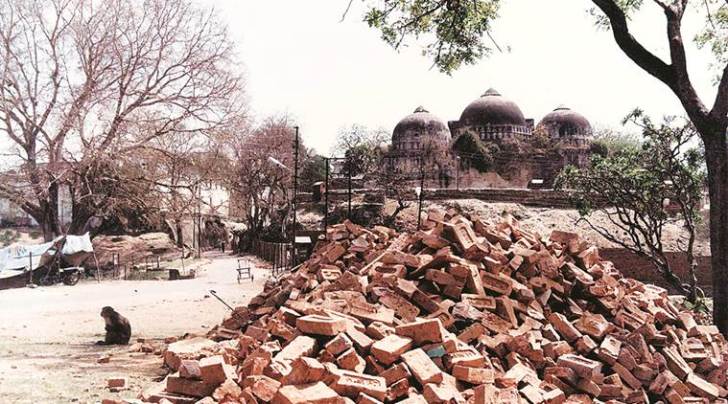 The Supreme Court said it will refer the Ayodhya case to a large bench only after hearing all the parties to the litigation.
The Supreme Court said it will refer the Ayodhya case to a large bench only after hearing all the parties to the litigation.
The Supreme Court on Friday said it will refer the Ayodhya case to a large bench only after hearing all the parties to the litigation. The apex court remark was in response to a plea by senior lawyer Rajeev Dhawan who was appearing for the Muslim bodies in the case. The court has fixed April 27 as the next date of hearing in the case.
Arguing that the case must be referred to a larger bench, Dhawan told the bench headed by Chief Justice Dipak Misra, that “Ayodhya land dispute was far more important issue than polygamy among Muslims and the nation wants an answer” to it.
The special bench of the apex court is seized of a total of 14 appeals filed against the high court judgement delivered in four civil suits.
Earlier, the apex court had dashed the hopes of activists like Shyam Benegal and Teesta Setalvad to intervene in the sensitive Babri Masjid-Ram Temple land dispute case, making it clear that only the parties to the original lawsuits would be allowed to put forth their arguments.
The petitions before the Supreme Court relate to the 2010 verdict of the Allahabad High Court in the Ayodhya land title suit that had been pending for nearly six decades.
The Allahabad High Court had ruled that there be a three-way division of the disputed land – one-third for the Sunni Waqf Board, one-third for the Nirmohi Akhara and one-third to the party for ‘Ram Lalla’.
The dispute before the court was whether the 2.7 acres of disputed land on which the Babri Masjid was constructed belonged to the Sunni Central Waqf Board or to the Akhil Bharat Hindu Mahasabha, who claimed the land to be the birthplace of Hindu Lord Ram, and thus entitled for the construction of a Ram Temple.
Thousands of Hindu karsevaks had demolished the Babri mosque in Ayodhya on December 6, 1992. Around 2,000 people were killed in the riots that followed.